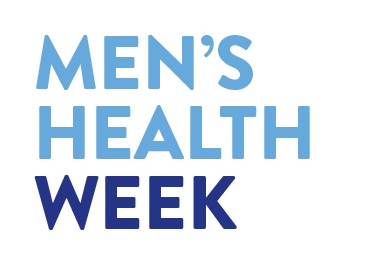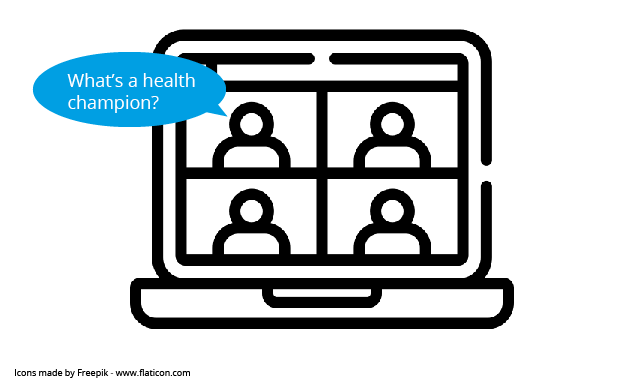What is a Health Champion?
Health Champions are not health professionals but members of the public who care about public health and want to help improve it.
Almost anyone can train to be a Health Champion. Champions are often members of a group, club, workplace, company or other organisation who watch out for their colleagues. It can be very fulfilling to see people turn their health round.
Health Champions can be particularly important for overcoming potential isolation around working from home and/or being unable to attend our usual social and leisure events.
What is it?
- A fun, informative, participative and interactive training course of 2 two-hour sessions online delivered by experienced Men's Health Forum associate trainers using Zoom. For group bookings, we can also provide the training via Microsoft Teams.
What does it offer?
- Health Champions are a tried and tested way to improve health in a community and can break down the barriers that often exist in health care provision. The training was developed as part of the Interreg 2 Seas Step By Step project in Hampshire by Peter Baker and Jim Pollard.
Who is the course for?
- Men (and women) who want to support other men to engage with their health
- Local areas, workplaces, commissioners and providers and anyone who wants to empower men to engage with their health (or learn more about the course).
What are the outcomes?
You’ll learn:
- the basics of men’s health;
- the role of a Health Champion;
- how to work with men to change health behaviours;
- the impact on men's health of Covid-19 and other crises;
- how to signpost them for more information.
You’ll also have a lot of fun and get a copy of our Health Champions manual full of further information.
Can anyone be a Health Champion?
Pretty much. Health Champions are empathetic, good listeners, willing to talk about health and other difficult issues and to be supportive without being directive. You don't need to be a health expert.
Do Health Champions make a difference for men?
The research suggests they can make a real difference. For men, they can be particularly useful: their more informal, man-to-man approach can provide an invaluable stepping stone between the men in their community and traditional, more formal health services.
An academic paper on our Men's Health Champions training highlighting the benefits has appeared in the journal Trends in Urology and Men's Health: Championing men's health: a peer-to-peer approach.
What is Zoom?
It is a pretty straightforward technology for joining meetings online. If you haven't used it before, there's more information here including simple instructions and a video. You'll need a computer, tablet or smartphone to download the Zoom app onto. Your device will need to have a large enough screen to allow you to read slides so laptop or decent-sized tablet recommended. We can probably help you set it up if necessary if you let us know.
Some businesses do not allow access to Zoom. Many trainees therefore use their own devices rather than the company's. For group bookings, we can also provide the training via Microsoft Teams.
More information
If you want any more information, contact us. We can discuss running a course to suit your specific needs.
Men's Health Champion Manual
You'll get a copy of this manual as part of your training.


